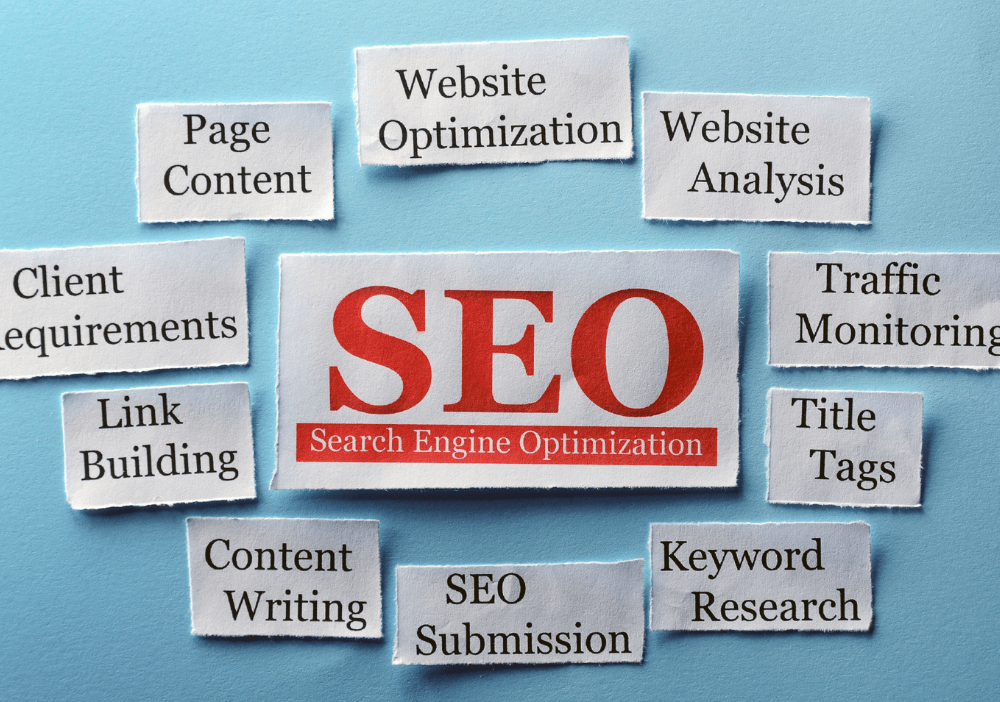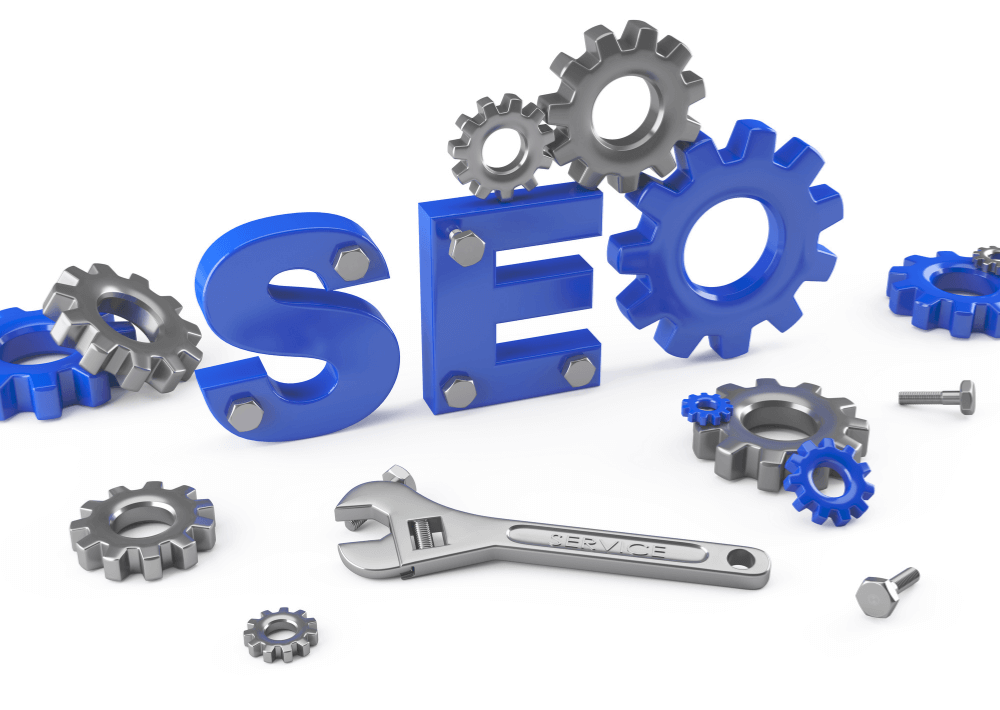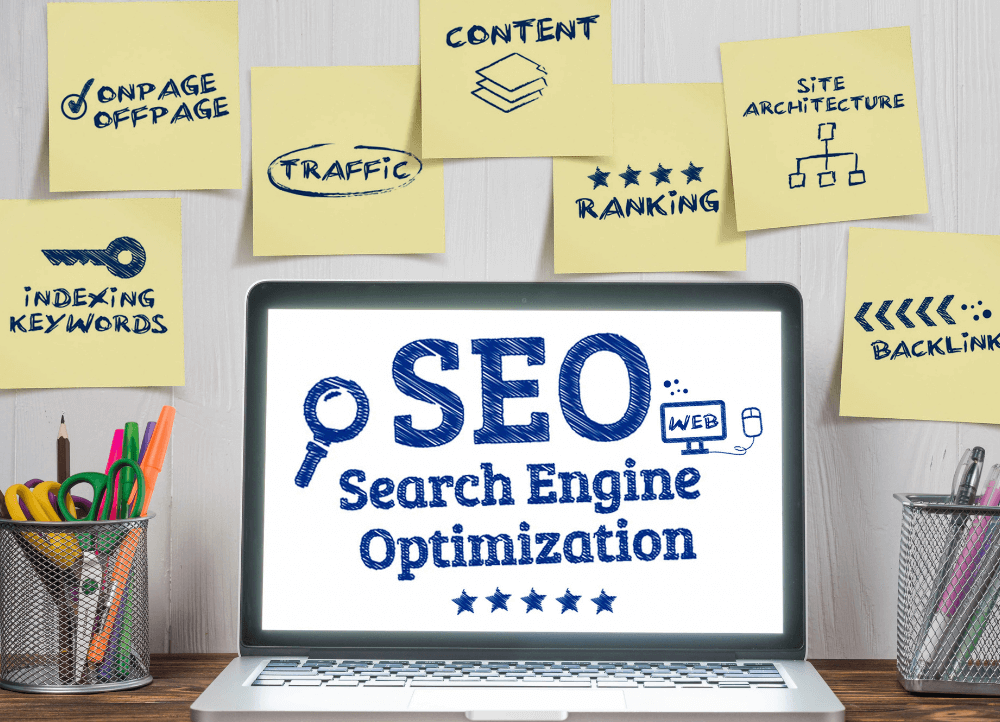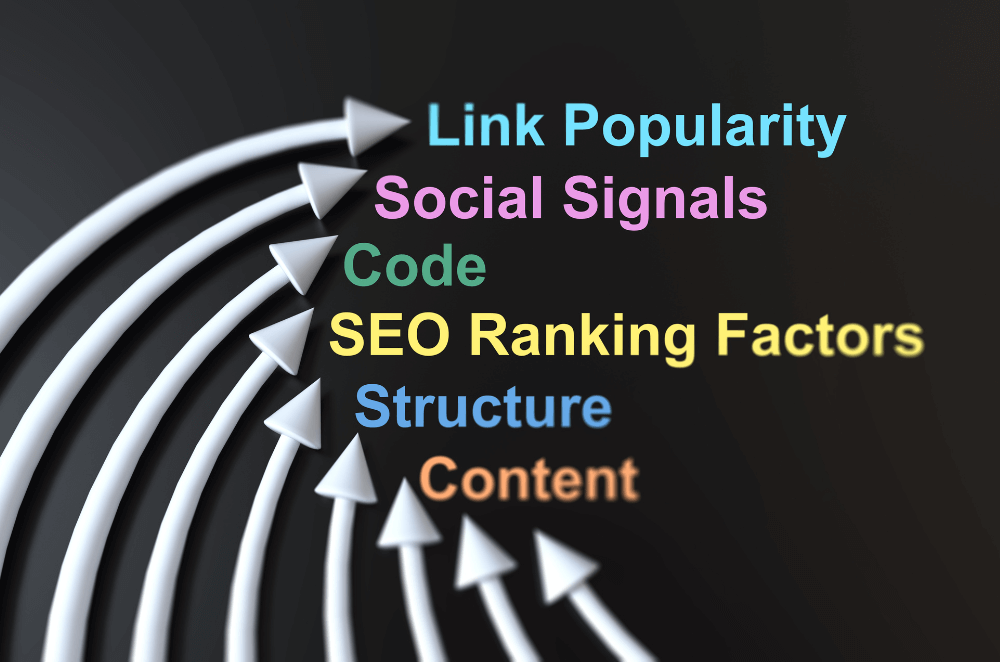Search engine optimization (SEO) is an essential aspect of digital marketing. It influences how your content is prioritized and displayed by search engines. Key factors such as keyword usage, quality content, and backlinks significantly impact your site’s SEO performance. Understanding these elements can elevate your website’s visibility.
To improve your site’s ranking, focus on creating high-quality content that engages and provides value to your audience. Effective use of keywords ensures that your content is easily discoverable by those searching for relevant topics. Building reputable backlinks to your site can enhance credibility and authority online.
Optimizing for technical SEO, including site speed and mobile-friendliness, can further boost your rankings. Search engines prioritize user-friendly sites, so ensuring a smooth experience is beneficial. Paying attention to these crucial factors can help you navigate the dynamic world of SEO and achieve better results.
Understanding SEO and its importance

In the world of digital marketing, understanding search engine optimization (SEO) is essential. The importance lies in optimizing your online content to be discoverable by search engines, which ultimately enhances visibility and drives traffic. The following sections demonstrate the evolution of search algorithms and dive into SEO best practices, including E-E-A-T principles.
Evolution of search algorithms
The landscape of SEO has drastically transformed due to the evolution of search algorithms. Search engines, like Google, continuously update their algorithms to improve user experience by delivering the most relevant results. These updates impact how content is ranked, making it crucial for SEO strategies to adapt.
Quality raters play a significant role in shaping the algorithms by providing feedback on search results. They help refine the criteria that determine content quality and relevance. Over the years, we’ve seen significant algorithm changes such as Panda, Penguin, and BERT, each prioritizing different ranking factors, from content quality to user intent.
Keeping up with these changes is vital for effective SEO practices. Understanding the shifts in algorithm priorities helps you create content that aligns with search engines’ evolving criteria, ensuring your website remains competitive in search results.
SEO best practices and E-E-A-T
To succeed in SEO, adhering to best practices is essential. A crucial component is the E-E-A-T principle, which stands for Experience, Expertise, Authoritativeness, and Trustworthiness. These elements form the foundation for evaluating content quality, influencing search rankings directly.
Incorporating E-E-A-T into your SEO strategy involves demonstrating genuine knowledge and expertise in your field. You need to establish credibility through authoritative content and trustworthy references. Enhancing user experience with engaging and informative content further strengthens your site’s authority.
Digital marketing strategies should integrate E-E-A-T principles by focusing on relevant, high-quality content that matches search intent. This approach not only improves search rankings but also builds a loyal audience, driving sustained growth in your online presence.
Technical aspects of SEO

Ensuring a website performs well across various technical metrics is essential for SEO. Aspects such as site speed, mobile responsiveness, security, and structured data all play significant roles in optimizing a site’s search engine performance.
Site speed and core web vitals
Site speed is critical for user satisfaction and search engine rankings. Google’s Core Web Vitals focus on three main aspects: Largest Contentful Paint (LCP), which measures loading performance, Cumulative Layout Shift (CLS), which indicates visual stability, and First Input Delay (FID), reflecting interactivity.
Optimizing these elements can significantly enhance user experience. Improving server response times, using efficient coding practices, and leveraging browser caching can aid in achieving fast load times. Tools like Google PageSpeed Insights offer valuable insights into performance improvements. Consistently monitoring these metrics ensures a fast and seamless user experience, which contributes positively to search rankings.
Mobile responsiveness and design
With the rise of mobile internet usage, mobile friendliness is non-negotiable for effective SEO. Responsive design allows your site to adapt to any screen size, providing a seamless experience across devices.
Google’s mobile-first indexing means that search engines primarily use the mobile version of content for ranking. This requires ensuring that all content is accessible on mobile devices, with a layout that adapts dynamically. Testing your site’s mobile performance using Google’s Mobile-Friendly Test can highlight areas needing improvement. Properly implemented responsive design not only enhances user engagement but also boosts search rankings, ensuring comprehensive accessibility for mobile users.
Secure and accessible website
Security and accessibility are key components of technical SEO. A secure website, indicated by HTTPS instead of HTTP, helps build trust with users and is favored by search engines. SSL certificates encrypt user data, making them an integral part of a secure web experience.
Accessibility ensures your website can be used by individuals with disabilities. Implementing features like alt text for images and a clear structure enhances usability. Search engines prioritize sites that maintain secure and accessible environments, as these aspects improve user trust and engagement. Regularly assess your site’s security protocols and accessibility features to align with SEO best practices.
Structured data and schema markup
Structured data and schema markup are powerful tools that enhance a search engine’s ability to interpret your website’s content. Implementing schema can lead to rich results, such as snippets, that improve visibility and click-through rates. Structured data provide context to search engines, helping them understand the content type.
Common schema types include articles, products, and reviews. Using Google’s Structured Data Markup Helper can simplify implementing the correct markup for your content. Accurately applied schema markup ensures search engines present your content effectively to users. This not only improves search rankings but also provides users with detailed information about your pages, increasing the likelihood of engaging them.
On-page SEO elements

Understanding key on-page SEO elements is vital for improving search engine visibility. Focus on aspects like content quality, keyword usage, and website structure to enhance user experience and indexing.
Content quality and relevance
Quality content forms the backbone of on-page SEO. Ensure each page delivers valuable, relevant information that matches user intent. Content should be clear, concise, and well-structured with appropriate use of header tags for better readability. Using a mix of text, images, and multimedia can engage visitors, increasing dwell time. Always strive to answer potential questions your audience might have. Regular updates to content also signal freshness and authority to search engines, helping maintain relevance.
Keyword research and optimization
Thorough keyword research is essential for identifying terms your audience uses. Use tools like Google’s Keyword Planner to find high-volume, low-competition keywords.
Incorporate these strategically throughout your content, but avoid keyword stuffing as it can lead to penalties. Focus on natural integration of keywords in titles, headings, and the body of the text. Pay attention to long-tail keywords that more precisely match user queries. This approach often results in better search rankings and more targeted traffic.
Internal linking and navigation
Internal linking structures your site and enhances user navigation. By connecting related content, you can guide visitors to relevant pages, increasing time spent on site. Use descriptive, relevant anchor text to improve context and SEO value. A well-planned link structure helps search engines index your site efficiently. Clear, logical navigation aids both users and search engines, ensuring key content receives traffic and authority is properly distributed across pages.
Meta tags and descriptions
Meta tags provide search engines with information about your webpage’s content. Ensure your meta descriptions are compelling, concise, and include primary keywords, as they appear in search results and influence click-through rates.
Title tags should be unique, concise, and adequately describe the page’s content. URL structures should be clean and descriptive, reflecting the content hierarchy and include keywords where appropriate. Proper meta tag use contributes to better visibility and user experience.
Off-page SEO and link building

Improving your website’s visibility goes beyond on-page strategies. Off-page SEO and link building play a critical role in building authority and trustworthiness, driving engagement through social signals, and ultimately boosting search engine rankings.
The impact of backlinks
Backlinks are essential to off-page SEO. They act as endorsements from other websites, signaling to search engines that your content is valuable and credible. The more high-quality backlinks you have, the stronger your site’s authority becomes. It’s vital to focus on acquiring links from reputable and relevant sources to maximize their impact.
To efficiently build backlinks, consider strategies like guest blogging, partnerships, and creating shareable content. Monitoring your backlink profile is crucial to ensure your links are beneficial rather than harmful. Tools like Google Search Console can help you track and manage your backlinks effectively. For more comprehensive backlink analysis and domain authority metrics, professional SEO tools like Moz’s Link Explorer provide valuable insights into your link profile quality and competitive landscape.
Brand authority and trustworthiness
Off-page SEO significantly impacts your brand’s authority and trustworthiness. Establishing yourself as an authority in your field can lead to more recognition and credibility. Search engines use this authority to determine your website’s relevance and value to users.
Building authority involves fostering relationships with influencers and authoritative sites in your niche. When these trusted sources link to you, it enhances your credibility. Consistency and a strong online reputation are keys to maintaining trustworthiness over time, which in turn positively affects your rankings and user trust.
Social signals and external engagement
Social signals refer to the presence and activities of your brand across social media platforms, influencing off-page SEO. While social signals may not directly impact rankings, they contribute indirectly by driving traffic and engagement to your site.
Encouraging external engagement through shares, likes, and comments can amplify your content’s reach. Engaging with your audience fosters a community around your brand, boosting visibility and authority. Be active on platforms relevant to your industry, and create content that resonates with your audience to enhance these signals effectively.
User experience and behavioral factors

In SEO, understanding the connection between user behavior and search engine signals is vital. Factors such as how well content matches user intent, engagement rates from click-throughs, and the overall usability and speed of a page all directly influence organic traffic and conversion rates.
User intent and content matching
Matching content with user intent is essential for optimizing search engine performance. When potential visitors conduct searches, they have specific expectations and needs. Ensuring that your content aligns closely with these expectations can significantly enhance its relevance and authority.
By focusing on accurately deciphering search intent, you increase the chance of capturing the user’s attention. This involves thorough keyword analysis and creating content that answers questions or solves problems. Your content should be clear, concise, and tailored to meet the identified needs of your target audience.
Click-through rates and engagement metrics
Click-through rates (CTR) reflect how often users click on your links in search results. This directly impacts your page’s SEO ranking. High CTR indicates that your page is relevant to users’ queries, leading to increased visibility and traffic. Engagement metrics like time on page and bounce rates further measure user interactions and satisfaction.
To improve CTR, use compelling titles and meta descriptions that prompt clicks. Once users land on your page, aim to maintain engagement through interactive elements, informative content, and a clear call-to-action. These efforts contribute to higher engagement metrics and better SEO performance.
Page experience and usability
Page experience and usability are critical in SEO, as search engines prioritize user-friendly websites. Factors such as page speed, mobile-friendliness, and accessible design elements play a significant role in retaining users and enhancing their experience. Faster loading times reduce bounce rates and encourage users to explore further.
Ensuring usability involves creating intuitive navigation and a seamless journey for the user. This means clear site architecture and responsive design across devices. By fostering a positive user experience, you not only boost your SEO rankings but also increase the likelihood of higher conversions and organic traffic.
Measuring and optimizing SEO success

To achieve successful SEO, it is crucial to focus on performance metrics and make continuous improvements.
Key tools like Google Search Console help track search engine rankings. Regular updates are also necessary to maintain organic growth and improve conversions.
Analytics and performance tracking
Metrics are essential for assessing SEO ranking. Google Search Console is a vital tool that provides data on search engine results pages. It allows you to monitor website performance by showing the number of clicks and impressions your site receives.
Additionally, it reveals which queries bring users to your site, helping you understand which keywords are effective. Performance tracking requires consistent evaluation of key indicators like bounce rates, conversions, and session durations. By analyzing these aspects, you gain insights into how users interact with your site. This information is critical for identifying problem areas that require attention. Regular report analysis ensures your strategies align with your SEO goals, leading to better visibility on search engine rankings.
Continuous improvement and update
SEO is not a one-time effort. Staying competitive means consistently updating your strategies. Focus on content freshness by regularly producing high-quality, relevant content that addresses user intent. Frequent updates also help maintain and improve your position on the search engine results pages. Implementing A/B testing can optimize user experience, impacting your site’s conversion rates positively.
Make sure to keep an eye on algorithm changes, as search engines periodically update their criteria. Being proactive by revising your strategies accordingly can prevent sudden drops in organic growth. Engage in regular audits to ensure your site remains technically sound and up-to-date, supporting sustained SEO success.
Mastering SEO with Quickly Hire for better website visibility
Search engine optimization (SEO) is key to enhancing your online presence. By optimizing for important factors like keyword usage, high-quality content, and building strong backlinks, you can significantly improve your site’s ranking on search engines. This helps make your content more discoverable and boosts its relevance. To ensure top-tier results, consider leveraging expertise through Quickly Hire, connecting you with skilled SEO professionals who can fine-tune your strategy.
Focusing on creating valuable content, using the right keywords, and securing reputable backlinks will help drive traffic to your site. Additionally, optimizing for technical SEO, such as improving site speed and ensuring mobile-friendliness, is essential for offering users a seamless experience. By partnering with the right fractional SEO experts via Quickly Hire, you’ll elevate your website’s visibility and improve its overall performance.

